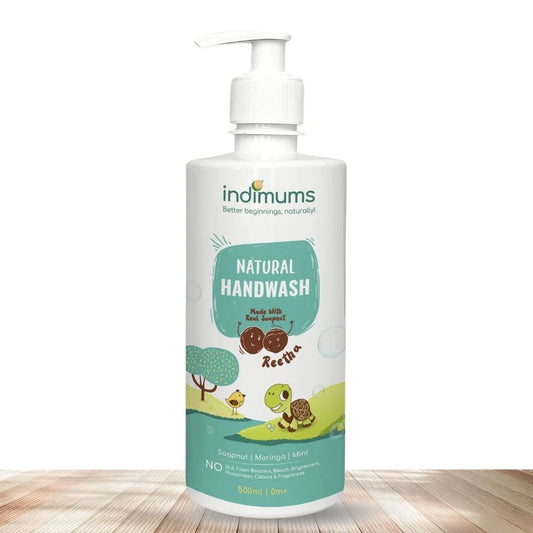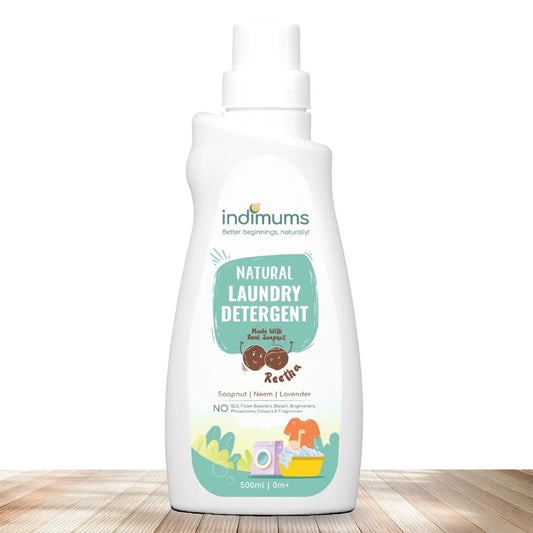As Indimums, a baby-care brand deeply committed to safe, natural, plant-based cleaning, we’re often asked: Is vinegar a baby-friendly cleaning solution for floors? In this post, we’ll explore the pros and cons of using vinegar, how it compares with dedicated baby-safe cleaners, and what science (and real-world experiences) say.
Why Parents Even Consider Vinegar
Many parents turn to vinegar as a natural disinfectant for floors because it’s inexpensive, readily available, and non-synthetic. It’s appealing compared to harsh chemical cleaners that might leave toxic residue — especially in homes with a crawling baby or toddlers who spend a lot of time on the floor.
But Is Vinegar Really Safe for a Baby Play Area?
1. Vinegar’s Chemical Nature
Vinegar (especially household white vinegar) typically contains about 5% acetic acid. It is a mild acid, which gives it its cleaning power, but also means it can potentially irritate or damage certain surfaces if misused.
-
According to the Institute for Environmental Research and Education, undiluted vinegar can be harsh for some surfaces, and might damage unsealed or waxed floors.
-
The Almanac warns that over time, vinegar’s acidity can dull or etch certain floor finishes (especially stone or delicate materials).
2. Risks to Children
While typical diluted household vinegar is relatively mild, there are important safety considerations, especially in a baby’s environment:
-
According to CanABaby, low-strength food vinegar is “generally safe” for young children when used in normal amounts, but stronger “cleaning vinegar” or very concentrated forms can irritate the skin, eyes, throat, or even stomach.
-
A more alarming risk comes from concentrated acetic acid. For instance, a recent medical report documented cases in Turkey where children accidentally ingested high-concentration vinegar (~85–98% acetic acid), resulting in severe injury to the esophagus.
-
That said, these extremely concentrated vinegar incidents are not typical household cleaning vinegar — but they do highlight that not all vinegar is created equal, and storage / usage matter a lot, especially around children.
3. Safety in Use
If you decide to use vinegar for cleaning, especially around baby play areas, here are some best practices:
-
Dilute the vinegar well — do not use it at full strength.
-
Use a mop or cloth; avoid letting puddles of undiluted vinegar remain on the floor.
-
Never mix vinegar with bleach, ammonia, or hydrogen peroxide — such mixtures can produce dangerous gases.
-
Test on a small, inconspicuous patch of flooring first.
-
Ensure the room is well ventilated, and allow the floor to dry thoroughly before letting your baby resume play.
If you’d like to understand which common cleaning chemicals you should avoid completely, check out our detailed guide on what floor cleaning ingredients are toxic for babies.
How Does Vinegar Compare to Indimums’ Baby-Safe Floor Cleaner?
At Indimums, we offer a dedicated, non-toxic floor and surface cleaner that is specifically designed for homes with babies and pets:
-
Our Indimums Natural Surface & Floor Cleaner is made from Reetha (Soapnut), neem and moringa extracts, and eucalyptus oil — all plant-based and free from bleach, ammonia, artificial fragrances, or harsh chemicals.
-
The cleaner is pH-balanced, hypoallergenic, and formulated to leave no chemical residue on the floor — giving you peace of mind when your baby crawls or plays.
-
It’s biodegradable and safe for repeated use — exactly what you want for a baby-friendly cleaning solution.
Compared to vinegar, Indimums’ cleaner offers gentler yet effective germ protection without the risks associated with acidity, potential surface damage, or incorrect dilution.
Final Thought
At Indimums, our priority is to provide baby-friendly floor cleaning solutions that combine natural ingredients with real germ-fighting power — without compromising on safety. While vinegar has its place, when it comes to your little one’s play area, a purpose-built, plant-based cleaner gives you a more reliable and worry-free clean.
Frequently Asked Questions (FAQs)
1. Is it safe to mop baby play area floors with vinegar every day?
Using diluted vinegar occasionally is generally safe, but daily use may damage certain floor types due to its acidity. It can dull wood, laminate, and stone over time. For daily cleaning, baby-friendly cleaners like Indimums’ soapnut-based floor cleaner are safer for both surfaces and babies.
2. Does cleaning baby play mats with vinegar remove germs effectively?
Vinegar works well for general cleaning, but it is not a registered disinfectant and won’t kill stronger germs like some viruses or bacterial spores. For high-touch baby play mats, a natural disinfectant designed for nursery use is a safer and more effective choice.
3. Can vinegar damage foam play mats or rubber flooring in baby play areas?
Yes, prolonged vinegar use can dry out or degrade EVA foam, rubber, and silicone-based play mats. Many parents report cracking or fading after repeated vinegar cleaning. Always do a patch test or use a gentle plant-based cleaner instead.
4. Will the smell of vinegar bother my baby while crawling or playing?
Some babies are sensitive to strong odors. Even though vinegar is natural, its sharp smell can linger. If your baby shows discomfort or sneezes, switch to a milder scented floor cleaner.
5. Is vinegar safe for cleaning around babies with allergies or eczema?
Parents in eczema-support groups often avoid vinegar because it may worsen irritation if residue remains on the floor. For eczema-prone babies, choose a hypoallergenic, fragrance-free, plant-derived cleaner.





